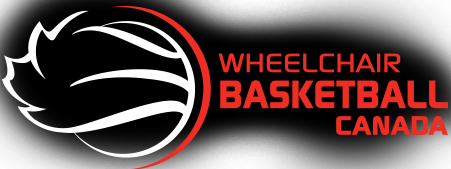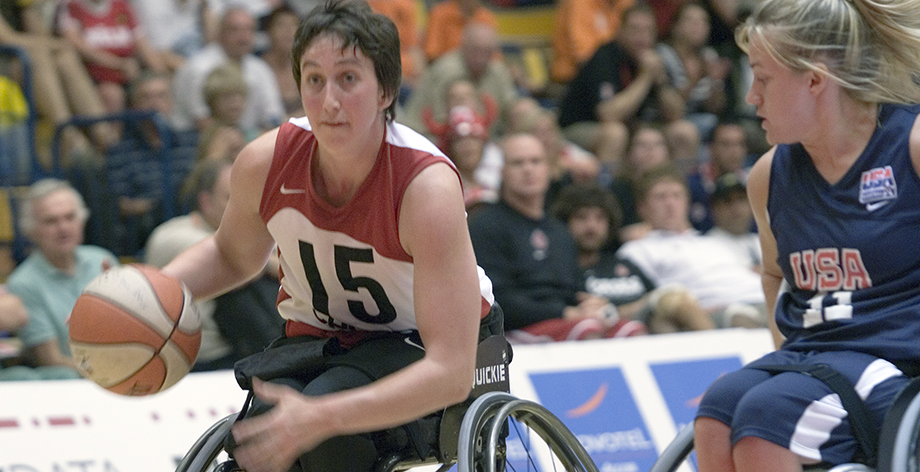The Edmonton native will be inducted into the Canadian Sports Hall of Fame on Oct. 19
Danielle Peers was parenting their toddler when they got the call from the Canadian Sports Hall of Fame. The call caught Peers off guard initially.
“It took me about halfway through the call to realize exactly what they were talking about,” Peers said. “When it occurred to me what was happening, it was pretty overwhelming and very exciting.”
Peers will formally be inducted into the Canadian Sports Hall of Fame on Thursday, Oct. 19, during a ceremony at the Canadian Museum of History in Gatineau, Que.
“Honestly, it took me by surprise,” they said. “There’s certainly a lot of athletes who paved the way for me who deserve to be there already before I was inducted. Also, it’s cool; I know that para-athletes aren’t always as recognized for their accomplishments, so it’s great to represent the sport that I love.”
Watch the Canada Sports Hall of Fame induction ceremony on Oct. 19 at 10 a.m. ET here.
Reflecting on their career, Peers credits Christina Jones for recruiting them to play wheelchair basketball and Jennifer Krempien and Karla Tritten for teaching them the nuisances of the game.
“They were the folks who built me up into the player I became,” Peers said. “Those two were pivotal for me, and when I started to crack the National Team, Chantal Benoit was a force to be reckoned with. There were athletes there before me who were out who made space for me to be queer, and an athlete, which is sort of part of being what’s being recognized too, is sort of my role in that part.”
Peers had a significant impact as a para-athlete and helped change the conversation surrounding queer people and people living with disabilities in Canadian sport and culture.
The Edmonton native starred with Team Canada from 2003-2008, winning a bronze medal at the 2004 Paralympics in Athens.
Peers also won a World Championship with the Senior Women’s National Team in 2006 in Amsterdam, where they were also named tournament MVP.
“For sure, the World Championship in Amsterdam in 2006 – it was the year before I retired due to a heart condition. That was certainly the top of the game at that time for me,” Peers said of their favourite memory.
Peers challenged gender divisions playing in men’s professional leagues in the U.S. and Europe and was named the European Men’s Champions Cup MVP in 2006.
“Playing in the European leagues in Meaux, France – that was an extraordinary experience,” Peers said. “Women and non-binary people have played in mixed leagues in Canada long before I started playing and dominating many of them.
“In France, this was unheard of. There was a steep learning curve. There weren’t even locker rooms for us to change in. I would say I was one cog in a larger wheel, and now there are many people on the Canadian Women’s National Team, for example, that go and play in Europe, which would be an expected thing.”
Domestically, Peers was a five-time National Champion with the Edmonton Inferno – the first women’s club in Edmonton that Peers helped form.
“It was just the athletes who, at some point – the club we were playing with at the time was choosing to fund either us or the men’s team,” Peers explained. “We just decided not to let someone else make that choice anymore. What is cool about the story is that it was athlete-led; we decided to do it, and we couldn’t access funding for the first four or five years.”
Since stepping away from the game, Peers has continued to challenge the discourse as an academic, community organizer, and 2SLGBTQQIA+ performance artist.
Peers is an associate professor at the University of Alberta and a Canada Research Chair in disability and movement cultures, with a focus on supporting organizations in sport and recreation to create more equitable opportunities.
“Equity is a little bit like a New Year’s resolution: people deeply want to do it; they will commit to it in the sort of large statements in their policies, but often what’s a little less obvious is sort the day-to-day things we need to do to realize that goal,” explained Peers. “I work with some extraordinary scholars, and we bring together an intersectional way of thinking about the sort of daily policies, the daily practices, the kinds of things we need to do to be able to realize a dream of having more people be able to play things that they love and to be able to not only be included but flourish there.”



